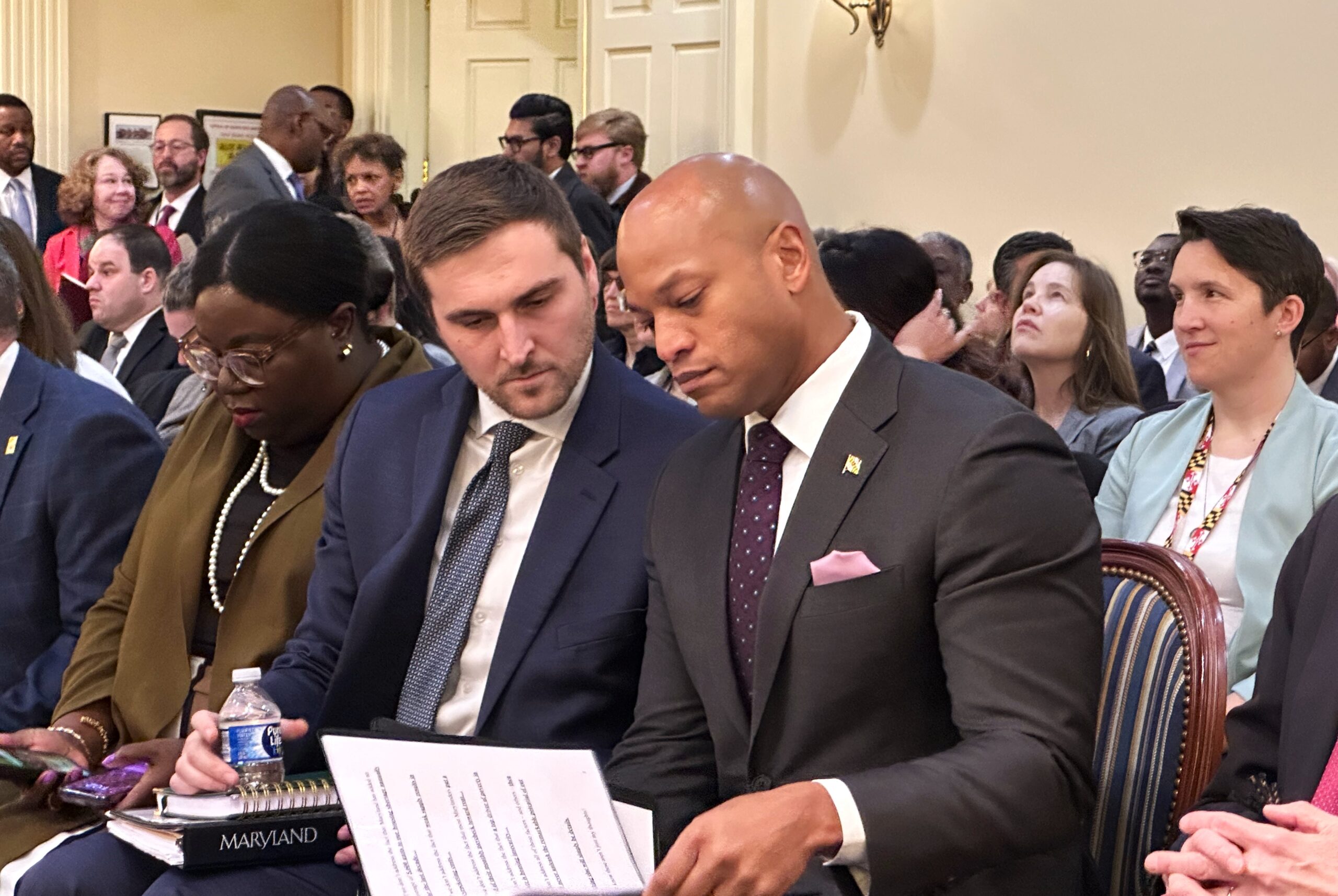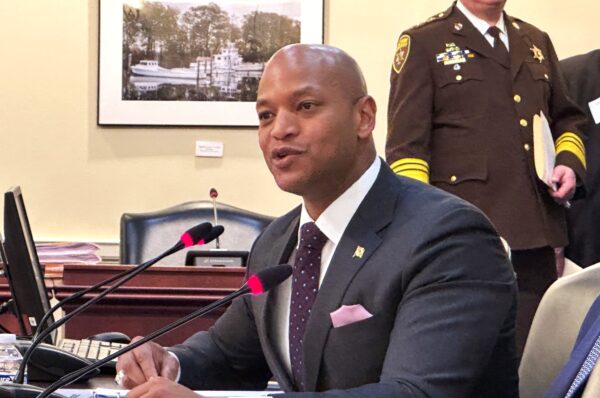Gov. Moore says housing proposal will work ‘hand-in-hand’ with local jurisdictions

Gov. Wes Moore (D) said his housing proposal will give “incentives…not mandates” to local jurisdictions as the administration tries to address Maryland’s ongoing housing shortage, according to his testimony in the House Environment and Transportation Committee Tuesday afternoon.
“This is a piece of legislation that is not heavy-handed, it really more works hand-in-hand,” Moore said during his first appearance before a legislative committee this General Assembly session. “We’ve wanted to make sure that every aspect… really showed that we planned on working with local jurisdictions.”
Moore unveiled his legislative priorities in January, including the housing package which is composed of three pieces of legislation. But there have been questions about whether the housing package oversteps the authority granted to local government officials and priorities.
The balance between state and local authority is a frequent point of contention whenever the General Assembly considers new statewide regulations or deregulation. But Moore signaled interest in collaborating with local governments to bring affordable housing options across the state.
“We knew there was a level of concern, because a lot of jurisdictional authority oftentimes sits with local leaders. We understand that, and we respect that. We also know that at a time when we have such a massive housing shortage where we’re looking at…over 96,000 unit shortage within the state of Maryland. We’ve got to find a way of being able to work together, to be able to address that kind of shortage,” Moore said.
The legislative package includes bills that create an Office of Tenants’ Rights to provide renters resources, set up a new state entity to manage federal investments for low-income communities, and provide “density bonuses” for certain development projects that include affordable housing options, among other measures.

Gov. Wes Moore (D) provides public testimony in support of his affordable housing legislative package on Feb. 20, 2024. Photo by Danielle J. Brown
“This is not about ‘how can we usurp zoning laws?’ This is about how we can come up with a better way of working in partnership…without taking a measure of jurisdictional authority away from local jurisdictions,” he told the committee.
The governor’s appearance is not the first time he came before a committee to testify on a bill. During the 2023 session, he attended several committee meetings to support legislation.
This contrasts with his predecessor, former governor Larry Hogan (R) who served for eight years but never weighed-in at hearings on bills that were under consideration by the primarily Democratic General Assembly.
Moore said that the “housing crisis remains one of the greatest threats to our state’s success” and hopes to increase the “supply” of affordable housing to help address the issue.
HB 599, referred to as the Housing and Community Development Financing Act of 2024, would create the Maryland Community Investment Corporation, a state entity that would make loans or investments aimed at developing and improving low-income communities.
“It will help ensure that we secure more federal investment. As we all have learned — I like federal investments,” Moore said of HB 599.
He said that the organization will be charged with “drawing new funding from the U.S. Treasury and investing that money in communities with high concentrations of poverty.”
The Senate version of this legislation, SB 483, will be heard Thursday in the Senate Education, Energy, and the Environment committee.
HB 538, named the Housing Expansion and Affordability Act of 2024, would allow certain development projects to exceed typical density limits if the new development incorporates a certain percentage of affordable housing units.
The goal is to incentivize new affordable housing development by permitting new properties to be developed with higher density and in a more expeditious manner in exchange for providing cheaper housing units.
The legislation could use some tweaks, said Baltimore County Executive John Olszewski Jr. (D), who is the president of the Maryland Association of Counties. Still, Olszewski said he is in favor of the legislation.
“The governor’s legislation is much needed, with tools and incentives to benefit local housing productions where development is appropriate,” Olszewski said. “However, consistent with feedback from my counterparts in local government, we do believe there are a few changes that could be made to ensure that this housing production does not preempt local land use authority or impact critical community infrastructure.”
The final housing bill in the Governor’s legislative package is HB 693, also known as the Renters’ Rights and Stabilization Act of 2024. The bill sets up an Office of Tenants’ Rights in state government, which would help tenants know what protections and legal actions they have under Maryland law.
To reduce the number of unnecessary evictions, HB 693 would increase the fee that a landlord pays to issue an eviction from $8 to $93. The additional funds would go to state housing assistance and vouchers to help struggling Marylanders find housing.
The bill also would give tenants residing in a rental property the right of first refusal if the landowner wants to sell the property. Tenants would have an opportunity to purchase the property before a third party could buy it.
Matt Losak, co-founder and executive director of Montgomery County Renters Alliance, urged Maryland lawmakers to pass stronger protections for renters in addition to pushing for new housing developments.
“While we absolutely support the idea of building more housing… we do not believe we will be able to build our way out of the rental housing crisis that we are seeing for so many renters,” Losak told the committee.
“It is a good idea that homeownership be a goal, but the fact is now, not only in our state but across the country, a majority of renters are never going to be able to buy their own homes. They are going to choose renting as a way of life for the rest of their lives,” he said. “In addition to building new housing, we must consider renter protections are necessary part of this balance.”




 Creative Commons Attribution
Creative Commons Attribution